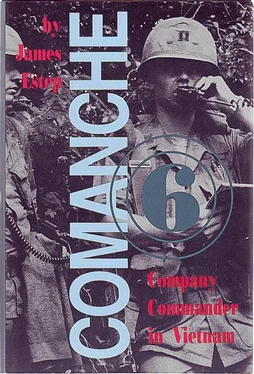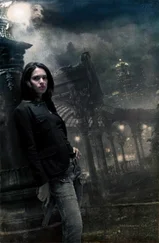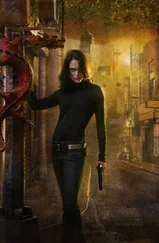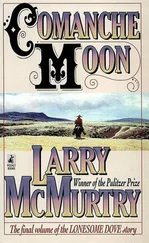And one bright and sunny day shortly thereafter, while Captain Cooper was standing in the turret atop his M-113 armored personnel carrier, a north Vietnamese sniper got lucky and put an AK-47 round right through the center of our ex-sergeant major’s chest.
The battalion rotated back to the boonies, relieved of its Camp Radcliff security mission by the unit next in line for a stand down. I remained behind at An Khe.
S-1 is the unit’s adjutant. He is responsible for those administrative functions associated with promotions and reductions, pay, awards and decorations, law, discipline and order, troop morale (in Vietnam, one of the more demanding of his duties), and troop safety (another somewhat taxing aspect of his responsibilities in combat). In short, his duties are many and varied—and boring. I was not terribly excited about my new job.
Fortunately, my PSNCO (personnel services NCO, the S-1’s principal enlisted assistant) liked his job, did it well, and knew more about my job than I could ever hope to learn. Hence, we soon developed a great working relationship; I stayed out of his way, spending much of my time forward with our troops, while he minded the store.
During these staff visits with the battalion’s line companies, I listened to our soldiers’ various S-1-related problems, trying to resolve them.
Rarely, however, did these complaints revolve around traditional military personnel issues such as pay, awards, or similar administrative shortcomings. More often, they centered on their mail. Mail, mail, mail! It was precious, and if it was not received regularly, snuffie was convinced the Army’s postal services were at fault. Regrettably, this was seldom the case; it was usually the fault of the sender.
To understand something of the infantryman’s war in Vietnam, one must first know of his extraordinary desire, his unparalleled need, for letters from home—letters that were, in many respects, his only tangible link with the sanity of his existence on this planet.
Frequently kept in the top of his helmet liner, they were read and reread until memorized, folded and refolded until Vietnam’s harsh climate reduced them to little more than confetti.
Of course mail from home has been important to all soldiers in all wars, but I believe it never before meant quite so much as it did to the American infantryman in Vietnam. The reason is that seldom before has an American soldier been asked to make such a profound change in his life—a condemned man’s transition from freedom to incarceration pales in comparison.
Snuffy usually arrived in his unit via an early morning or late evening helicopter sortie as an eighteen-or nineteen-year-old replacement. At this juncture he probably realized his chances of dying in the Nam were, statistically, greater than those of any other man in the unit he had just joined because he would remain in harm’s way longest—the others were all “shorter” and would rotate home before he would. From this point on, with the possible exception of a seven-day rest-andrecuperation (R&R) leave (probably spent somewhere else in Asia), he would live each day of the next year in the surreal, virtually indescribable existence of the “boonie rat.”
He would dig a hole each night and, if he were lucky and things remained quiet, sleep half a night in it; he might dig three hundred or more such holes before completing his tour. He would stand to before dawn each morning because, centuries before his birth, great tacticians had concluded that this was the time he’s most vulnerable to attack.
With no attack forthcoming, he would eat his cold C rations; shave and wash out of his helmet, when water was available; and then clean his weapon—a daily ritual he could, and often did, perform in total darkness. Then he would walk the mountains, the jungles, the plains, and the paddies of Vietnam seeking Charlie. At night, after swallowing his nauseating daily malaria pill and digging a new hole in a different location, he would mark another day off his “short-timer’s” calendar.
He would rarely bathe because bathing facilities were rarely available, would wear no underwear because underwear rotted, would reek of the unwashed but would be unaware of it because everyone around him smelled the same. When it rained, he would get chillingly soaked and pray for the drying rays of the sun, and when the sun appeared, he would sweat mightily and pray for the cooling comfort of a tropical shower.
During his twelve-month tour as a boonie rat, there would be no movies, no television, no radio, and no Bob Hope—these were reserved for those serving in rear-echelon assignments. He would read the Stars and Stripes when those of the rear echelon remembered to send it out on the evening log bird, on those evenings the log bird flew.
Human nature being what it is, he would try to make friends upon joining his unit but would often find others reluctant to befriend him, the reality of infantry combat being what it is. He would eventually find a close friend only to lose him through rotation, evacuation, or death. He would then be reluctant to befriend others.
He would live this day-in, day-out existence of denial and repetition, of heat, sweat, cold, mud, dust, boredom, and at times stark terror, until he was wounded, was killed, or completed his tour. Before that happened, he would very likely kill a fellow human being on at least one occasion. He would undergo all of this while his country was at peace and his more fortunate civilian counterpart was reaping the benefits of a prosperous nation ten thousand miles and another world away.
His only anchor to his past, to the reality that that world still existed, was through those letters from home.
And too many of those letters were eventually stamped “Search.”
“Sir, the reason they’re on your desk is ‘cause existing regulations dictate that an officer, normally the unit’s S-1, review all Search mail before returning it to the division AG,” my ever technically astute PSNCO explained.
“But why do we stamp them Search?” I replied. “Why not KIA, like you see in the movies? What the hell we searching for anyway?”
“Sir, we’re not searching for anything. I mean Search doesn’t mean search. It merely means the service member is dead, killed in action.
You know, sort of a code word. Uh… guess it’s kind of a morale thing; the Army just doesn’t want a bunch of letters out there with KIA stamped all over them. Shit, somebody might think we’re at war!”
“Okay. Understand. Now what happens to it after we verify the man is indeed dead… I mean ‘searched’?”
“Beats me, sir. I don’t know if they return it to the sender, forward it to the next of kin, shit-can it, or what. We just send it back to division AG stamped Search.”
So, along with my other duties, I reviewed our Search mail, comparing the names of addressees with those listed on our rosters of battle losses. It was a depressing chore, especially with Christmas of ‘67 rapidly approaching, bringing in its wake holiday greeting cards marked Search.
Understandably, mail addressed to the most recent of our fallen was usually from the victim’s immediate family—a father’s or mother’s letter to their son, a wife’s letter to her husband. Of course, mail of this nature was nearly always postmarked before the soldier was killed, and by the time it crossed my desk, the father or mother knew they no longer had a son, or wife a husband. However, I was surprised at the number of letters addressed to soldiers who had died weeks or even months before. These were from friends (or I suppose other acquaintances) who were evidently disassociated from the victim’s family and therefore not encompassed in the Army’s casualty notification process—perhaps a fellow trainee during basic, an old school churn, a girl he might have met at Fort Benning, Jackson, Polk, or Dix. Search!
Читать дальше












